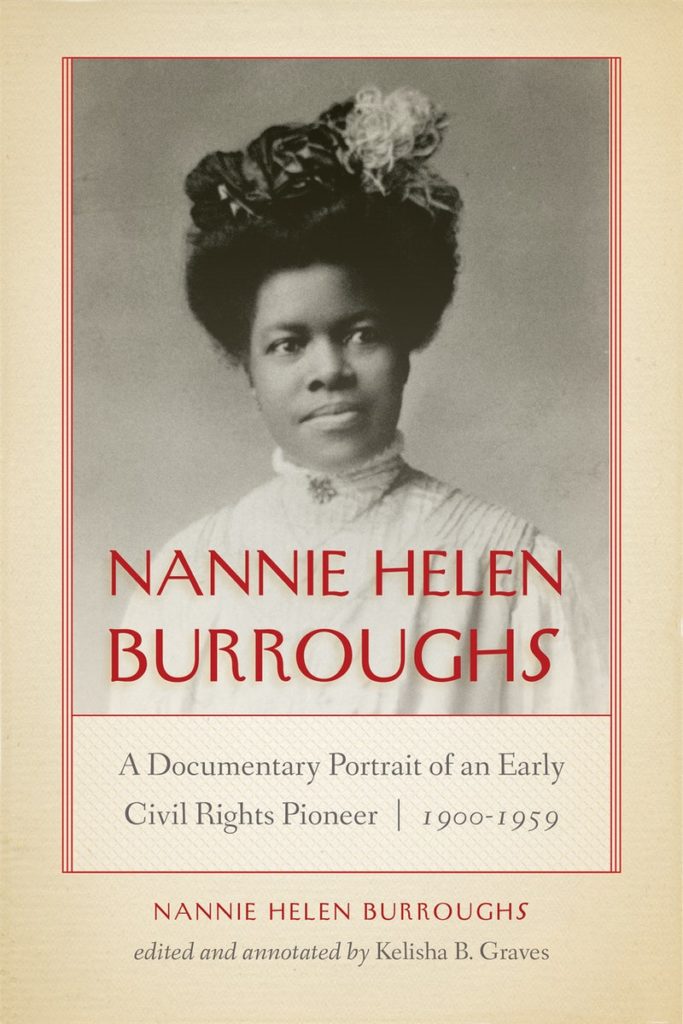E’ry day this month, the Center for Black Educator Development, in partnership with Phillys7thWard.org, will highlight a Black Educator Hall of Famer.
But, don’t forget, e’ry month is Black History Month…February is just the Blackest.
Today, our featured Black Educator is Nannie Helen Burroughs.
Nannie Helen Burroughs, an educator and eduactivist; she was indeed a triple threat.
Burroughs was born May 2, 1879 in Virginia. Her mother, seeking better educational opportunities for her Black children moved to the nation’s capital. While the educational system was better, as Black people continue to experience today, the racism was the same. But, as many Black children continue to experience, their dedicated Black teachers helped them to learn content and context and equipped them with the tools, shields, and armor to navigate and undermine America’s racist and misogynistic systems. One of Nannie’s teachers was the legendary Mary Church Terrell. One of the administrators of the M Street School, a historic institution, was Anna J. Cooper.
After attending school in Washington D.C., she landed in Louisville, Kentucky with the National Baptist Convention (NBC), serving as a bookkeeper and editorial secretary for their Foreign Mission Board. Her passion for women’s suffrage led to her creating the Women’s Auxiliary and founding of the National Training School for Women and Girls in 1909. Starting this school was no easy task. Nannie did not want to rely on wealthy white donors, she didn’t have a college degree, and even Booker T. Washington expressed his concern if she could garner enough support to open her school. Some contend that colorismand classism played roles in the challenge she steadfastly overcame to open this school for Black women. Her dedication to the “humblest” of her community was her focus and she would not be deterred.
Jess McHugh writes in the Washington Post:
The problem was not her credentials. Nannie Helen Burroughs had graduated with honors from the prestigious M Street High School in the nation’s capital. Nor did being African American disqualify her; the administrators were hiring people of color to teach in the city’s segregated schools.
Still, Burroughs’s job application to a D.C. public school was rejected inthe 1890s, likely because of the prejudice of colorism — a preference for lighter-skinned staff. Put simply, historians say, the Black people doing the hiring believed her to be “too Black.”
Often, it is instructive to understand and craft a path towards Black liberation by combining portions of the Black Blueprint. Nannie excelled at this and was considered a combination of giants, Booker T. Washington, W.E.B. DuBois, and Marcus Garvey, because of her fierce dedication to her people, her fiery anti-racist speeches and editorials, and the practical school curriculum she used at her school. At twenty-one, Nannie gave a brilliant speech, “How the Sisters Are Hindered From Helping,” blasting the ubiquitous misogyny and addressing the pervasive oppression preying on the intersectionality present in Black women’s lives.
She served as president of the school until her death in 1961. The school was renamed after her, in her honor, the Nannie Helen Burroughs School.
While leading her school, Burroughs consistently collaborated with other civic organizations including the National Association of Colored Women, the National Association of Wage Earners, and the Association for the Study of Negro Life and History. She was also well regarded amongst giants of her day. She chaired a committee on housing for Blacks at the behest of Herbert Hoover. Burroughs participated in a panel discussion with Carter G. Woodson and was a good friend to Rev. Dr. Martin Luther King and his family. President Woodrow Wilson had Burroughs surveilled after she criticized him for turning a blind eye to the massive lynchings that were occurring across the country.

Burroughs was an educator that personified commitment and resolve; an individual who knew where and how to center her attention to garner the greatest impact. To that end, many people benefited from her passion and discipline. Throughout her career, she fought against racism and “white-thinking” Black people.
As educators, we often try to get the most bang for our buck; we try to do everything and be everything to everyone. However, as we pitch in to serve the school community as best we can, we must work smart, gradually improve, but also stay committed to what we’re here to do; teach and teach well. Nannie Helen Burroughs lived, taught, and fought well. May we do the same.
Nannie Helen Burroughs; a member of the Black Educator Hall of Fame.
#BlackEducatorsHoF #BlackTeacherPipeline
For more information on Nannie Helen Burroughs, visit the following site.


Another great read. I am so inspired as a black female educator! Periodt!